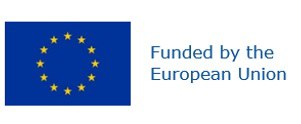MERGE - Measuring what matters: Improving usability and accessibility of policy frameworks and indicators for multidimensional well-being through collaboration
Achieving the United Nations Sustainable Development Goals and the European Union's policies on environmental and social sustainability requires a comprehensive measure of human progress that does not focus solely on GDP. However, the evidence on alternative approaches is fragmented and the lack of consensus on competing indicators and policy frameworks is a mAchieving the United Nations Sustainable Development Goals and the European Union's policies on environmental and social sustainability requires a comprehensive measure of human progress that does not focus solely on GDP. However, the evidence on alternative approaches is fragmented and the lack of consensus on competing indicators and policy frameworks is a major obstacle to setting policy goals that promote multi-dimensional well-being and to monitoring and measuring progress. MERGE addresses these challenges by providing a forum for dialogue, co-creation and knowledge exchange, and by linking cutting-edge research and policy practice. A consortium of leading researchers and key communities in the field, MERGE brings together three recently launched higher education research consortia (SPES, ToBe, WISE Horizons) and an ERC grant (REAL). To scale up results, MERGE provides a framework for creating and strengthening a multidisciplinary community of researchers, a technical and knowledge network, a policy network and a network of civil society actors. Through these networks, MERGE aims to build a broad consensus on easy-to-use and acceptable indicators and frameworks for measuring multidimensional well-being within planetary boundaries in the EU and Member States, as well as in global organisations and civil society. MERGE participants will benefit from collaborative and training events, analyses, indicators, datasets and policy briefings. Through knowledge exchange, stakeholders and researchers can adopt and develop a systematic and coherent understanding of the sustainable economy paradigm in their own work.
Project details
Scientific responsability: Lauretta Rubini
Funding source: HORIZON EUROPE
Call: HORIZON-CL2-2023-TRANSFORMATIONS-01-02
Start date 01/01/2024 - end date 31/12/2026
EU contribution: 3.618.358,15 €
EU contribution to UniFe: 113.985,00 €
Participants
- Tampereen Korkeakoulusaatio Sr, Finland
- Institute for Future-Fit Economies Gemeinnutzige Ug, Germany
- European Policy Centre, Belgium
- Demos Research Institute Oy, Finland
- Universiteit Leiden, Netherland
- Pin Soc.Cons. A R.L. - Servizi Didattici e Scientifici per l’Universita di Firenze, Italy
- Universitat de Barcelona, Spain
- Universiteit Gent, Belgium
- University College London, United Kingdom
- Universita degli Studi di Ferrara, Italy
- Wellbeing Economy Alliance, United Kingdom
- Research and Degrowth International, Spain
- Uk Office for National Statistics, United Kingdom
- Institut d'estadística de Catalunya, Spain
- Plate-Forme des Ong Europeennes du Secteur Social Aisbl, Belgium

